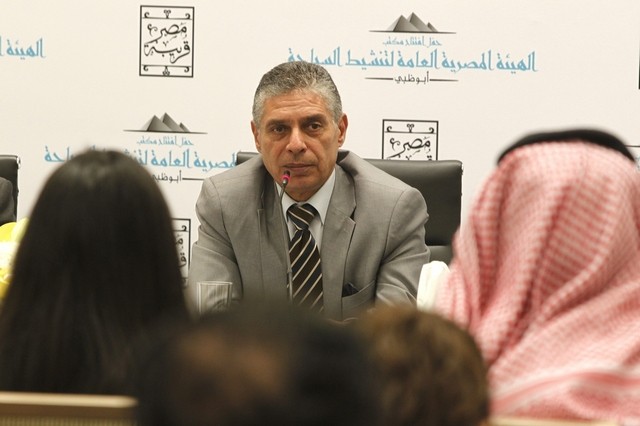Egypt expects a 45 per cent jump in Emirati tourists this year, the chairman of the Egyptian Tourism Authority (ETA) said at the launch of the Abu Dhabi office yesterday.
This year Egypt will receive 80,000 Emiratis, up from 55,000 last year, said Samy Mahmoud, the ETA chairman.
“The political situation is better in Egypt and so is the image,” he said.
During the first half of the year, Egypt received 4.7 million tourists, up 8.3 per cent from 4.4 million during the same period last year. The office, which is located within the Egyptian embassy, will also cater to the Arabian Gulf countries as well as the Levant.
Last month, two tourist police officers were killed a gun attack killed near the pyramids of Giza, and in a separate incident a number of people were wounded and two attackers killed in an attempted suicide bombing at the ancient Karnak temple in Luxor. Egyptian officials, however, played down the threat to the tourism industry from extremists. They said that the security situation in Egypt is different from that in Tunisia, where gunmen opened fire at a resort beach in June, killing least 38 foreign tourists.
“It was a political message for Tunisia; in Egypt we don’t have such large involvement of terrorism. We are only suffering are the northern parts of Sinai,” said Ihab Hamouda, the Egyptian ambassador to the UAE.
“We have secured the beaches and sites in Egypt in general.”
Last year tourism contributed 9 per cent of the country’s GDP, down from 15 per cent in 2010. By 2018, the contribution is expected to rise to 25 per cent, the officials said.
Emiratis are among the top spenders in the country, with each shelling out US$120 to $150 a day per trip.
Egypt expects to receive 11 million tourists this year, up from 9.9 million last year. The top source countries include Russia, the UK, Germany, Italy and Poland.
With the new Suez Canal opening next month, the area would also be developed to have free zones and tourism projects.
Along the length of the canal and in between the two channels, the government is expected to develop fish and agricultural farms, tourism sites and other services, providing a much-needed boost to the so-far neglected Sinai region.
“By 2018, we expect $100 billion in revenues from the Suez Canal project, and this will come not only from the passing ships but also from the various projects,” Mr Hamouda said.


